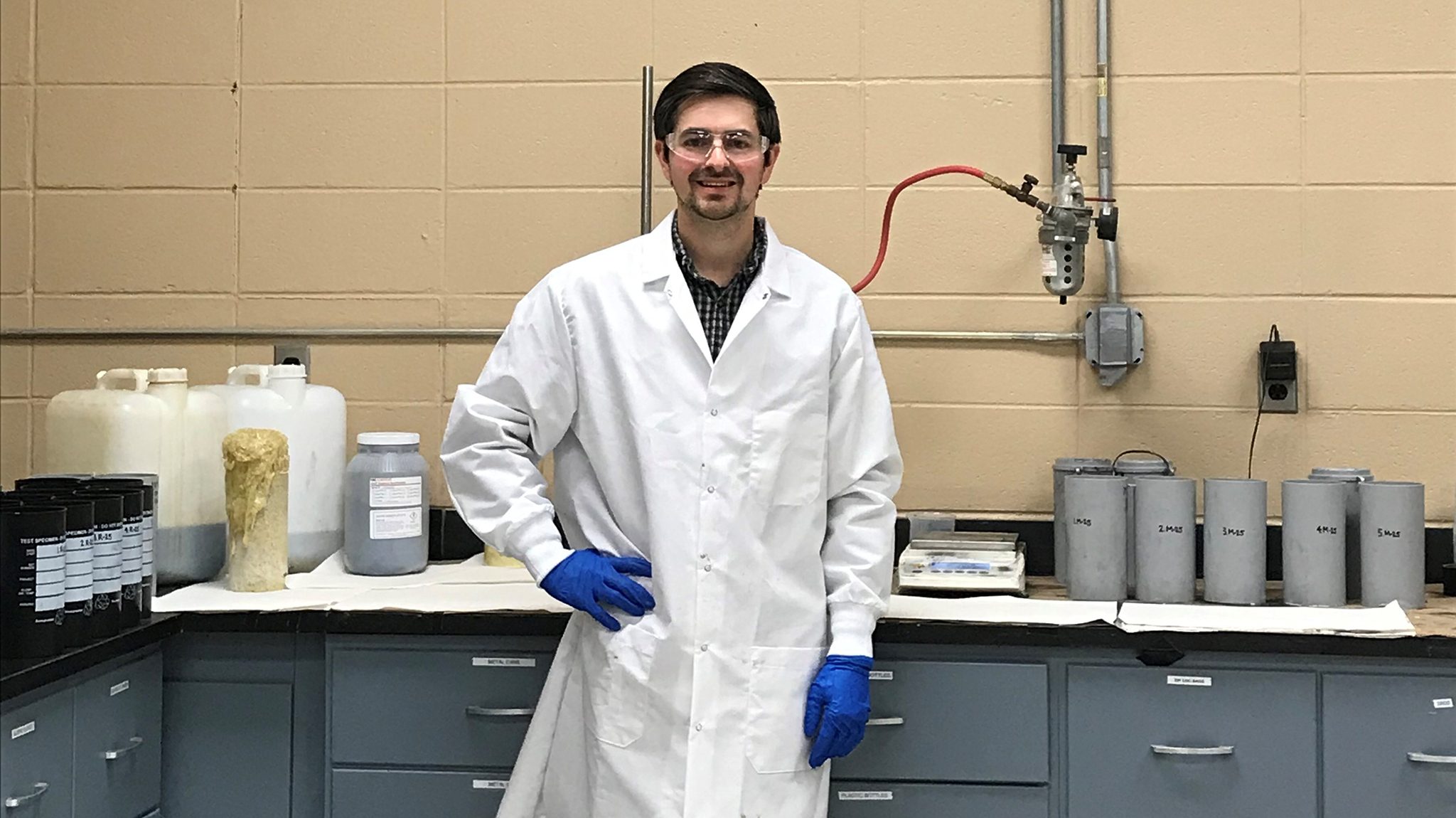
UM chemical engineering alumnus John Brasher works for the U.S. Army Engineer Research and Development Center in Vicksburg. Submitted photo
From finding solutions for wastewater remediation to creating nanomaterials for use by the U.S. Army Corps of Engineers, John Brasher (BSChE 12) has proven to excel at research.
“A huge piece of process engineering is the idea of ‘process improvement,’” said Brasher, a research chemical engineer in the U.S. Army Corps of Engineers’ Engineer Research and Development Center in Vicksburg. “You ask yourself the ‘why’ question over and over until you reach the true point of failure or core problem. I fell in love with this core mechanism/philosophy, and it ultimately drove my professional interest to the field of research, the ultimate field of ‘whys.’”
Over the past year, the University of Mississippi chemical engineering alumnus has worked with various teams to help solve some of the Army’s and Department of Defense’s water-related issues.
“I’ve worked in wastewater remediation for Army ammunition plants as well as the removal of per- & polyfluoroalkyl substances from DOD water sources,” he said. “Outside of environmental work, I also perform research on the creation of advanced and composite nanomaterials for polyurethane applications within the DOD.”
Brasher said one of his most rewarding achievements was the removal of halogenated fire retardants from production-grade polyurethane foams.
“Halogenated fire retardants have been in consumer products for years,” he said. “However, these particular chemicals have been found to be carcinogenic. I was tasked with the removal of the company’s formulations within our division while being able to maintain the required anti-flammability specifications.”
This particular project took over a year with a significant level of trial and error, but in the end Brasher said it was successful.
“It was the first project that really taught me the values of patience and perseverance,” he said.
He also has overseen various capital projects. Over his career thus far, Brasher has managed the process of identifying plant or facility problems; scoping out potential solutions; providing economic, safety or environmental justifications for the potential solutions; overseeing the construction of the solution; and eventually leading the implementation, startup and optimization of the solution.
“I’ve gone through this exercise several times, and each time has been rewarding in its own way,” he said.
Originally from Hernando, Brasher said he decided to attend UM for several reasons.
“Outside of the academic prestige that comes alongside being a graduate of the University of Mississippi, one of the bigger influencers to my decision to attend Ole Miss was family history with the university,” Brasher said. “I have many members of my extended family that have attended and received at least a bachelor’s degree from UM.”
One of Brasher’s favorite undergraduate professors was John O’Haver, chair and professor of chemical engineering.
“My personal favorite (class) of his was Chemical Engineering Economics,” he said. “I’m not sure if that’s still offered, but I found it to be incredibly entertaining. More importantly, though, was the direct impact it has had on my career managing large capital projects.”
O’Haver remembers Brasher as “a sharp, quiet, hardworking student.”
“He has been a great alumnus, working to get co-ops, internships and job placement for our graduates,” he said.
Brasher said he also enjoyed taking Peter Sukanek’s plant design and fluids courses.
“That may have to do with the long hours spent on project work for the classes, but I feel like those courses best prepared me for ‘real-world’ engineering,” he said.
Brasher is pursuing his Master of Science degree in polymer science and engineering at the University of Southern Mississippi. His anticipated graduation date is May 2021.
“My first seven years of experience upon graduation were spent in the field of process engineering in the plastics industry and the oil and gas industry,” he said. “I like to describe process engineering in chemical plants as the application of engineered solutions to large-scale thermodynamic systems.”
Brasher said that without the education and preparation he received through UM’s chemical engineering program, he never would have been able to handle or understand any level of what he’s done professionally.
Brasher and his wife, Jordan, live in Clinton and have a daughter, Katherine. Brasher’s hobbies include playing electric guitar and designing/building guitar effects.